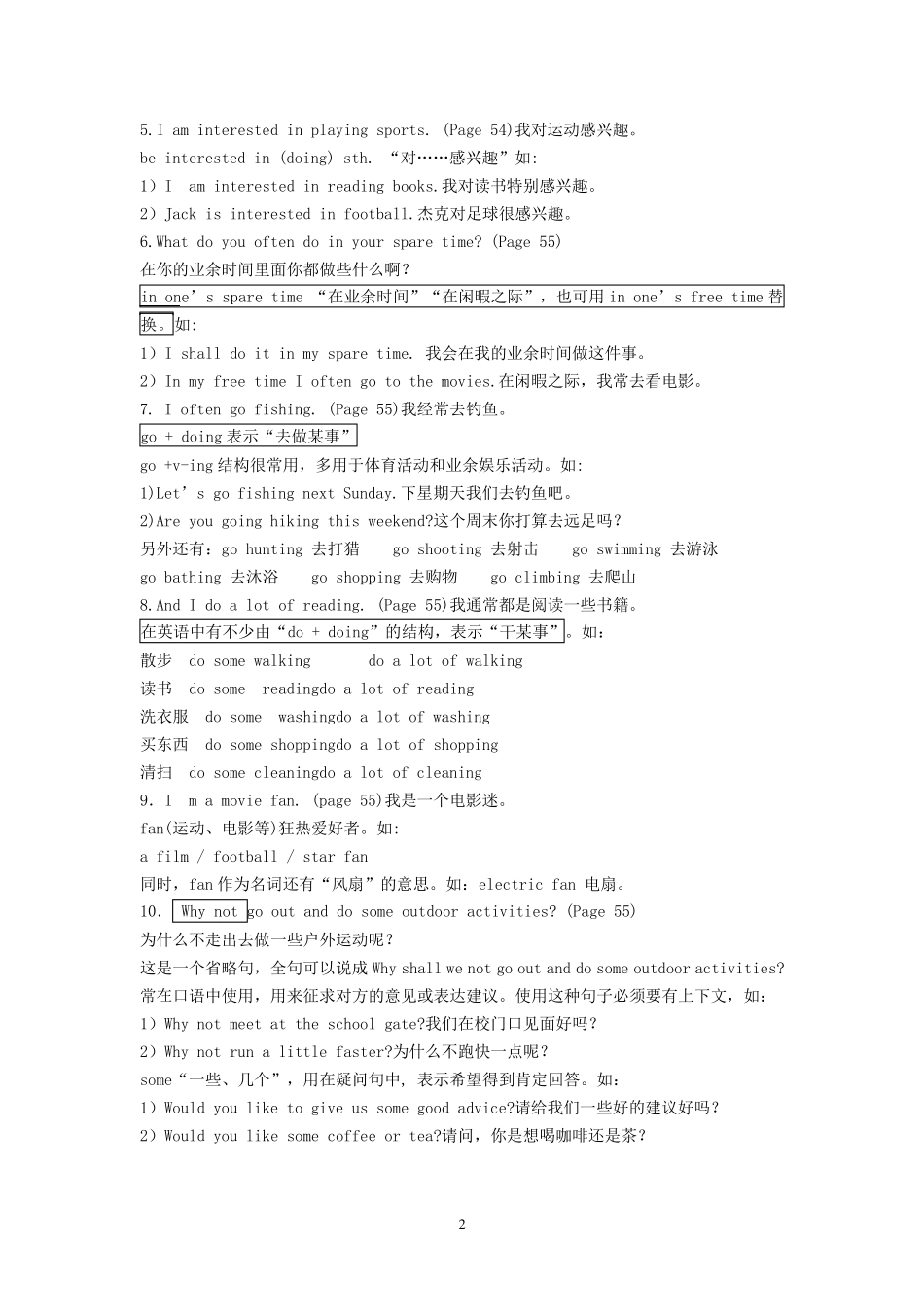1 Unit3 Topic 1 一.重点词汇 used to do sth. 过去常常做某事 take a bath 洗澡 be interested in 对……感兴趣 go dancing 跳舞 go boating 划船 play volleyball 打排球 collecting stamps 集邮 listening to pop music 听流行音乐 listening to classical music 听古典音乐 walking in the countryside 在乡间散步 such as 例如 二.重点句型: 1.Wow! So many stamps!(Page 53)哇,那么多的邮票! 本句意为:There are so many stamps. so many 意思是“那么多”,so much 意思也是“那么多”。如: 1)There are so many flowers. Or: So many flowers!这里有这么多的花。 2)There is so much water on the table. Or: So much water!桌子上有那么多的水。 2. We can learn a lot about people, places, history, and special times from stamps. (Page 53)通过这些邮票我们可以学到许多关于人文、地理、历史和特殊时代的知识。 a lot “许多、大量”,用在动词后,同 very much。如: 1)She had told me a lot about how to learn English well. 她告诉我许多有关怎样学好英语的方法。 2)Thanks a lot.非常感谢。 另外,a lot of 和 lots of 的意思也是“许多、大量”,要用在名词前,在肯定句中常代替 much,many。在口语中尤其如此。如: There are a lot of / lots of history books in the room.屋里有许多历史书。 There is still a lot of / lots of snow on top of the house.房上仍有许多雪。 We have had a lot of / lots of fruits. 我们吃过许多水果。 a lot of 和 lots of 之间没有多大区别,都可以与可数名词和不可数名词连用。与不可数名词连用时,动词用单数,与可数名词连用时,动词用复数。见上述例句。 3.Would you like to collect any of these things? (Page 53)你想集下面这些东西吗? would you like to +动词原形,表示“想要……”如: 1) Would you like to have a cup of coffee? 你想要一杯咖啡 吗? 2)Would you like to have something to drink? 你想要点喝 的吗? any 用在疑 问 句、条 件 从 句中,可以翻 译 为“什 么”、“一些”。如: 1)Are there any lett...


